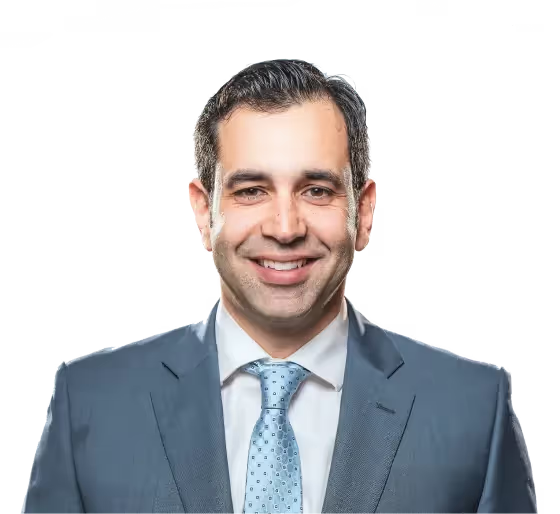table of contents
Getting the proper medical treatment and receiving the right documentation to back up your diagnosis and injuries will help you get the financial compensation you deserve. This documentation will serve as proof of your economic losses and detail the extent of the severity of your injury.
Maximizing Your Claim’s Worth with Medical Evidence
Ensuring you get the right medical care and diagnosis is critical to your claim. You’ll maximize your claim’s worth by proving the extent of your damages. Your medical costs will be apparent due to your medical bills, and the severity of your injury should be clear on your diagnosis. This evidence will help prove how much you’ve lost as well as how much you’re likely to lose in the future coping with your injury and recovery.
When you have the right diagnosis, you can also turn to medical expert witnesses. These individuals can provide statements or testify on your behalf regarding the long-term effects of a serious injury or the likely duration of your recovery period. This will prove to be invaluable evidence if your case goes to trial since the expert’s testimony will carry some weight.
Factors Insurance Adjusters Consider When Evaluating Your Case
When evaluating a personal injury claim for compensation, an insurance agent will want to look very closely at all of your claims. This intense insurance scrutiny protects the insurance company’s interests, and it could be devastating to your claim if you don’t build up a solid case.
An insurance adjuster will consider how long it took you to seek out medical care. If you didn’t get care within the first few hours or days, then an adjuster will surely argue that you made your own injuries worse. If you didn’t receive a good diagnosis, then an adjuster might believe that you’re attempting to exaggerate your injuries. Insurance adjusters will also consider your potential level of negligence in the accident, the likely duration of your injury, the nature of how the injury formed, and the potential extent of the injury.
Since insurance adjusters will be looking for these factors, you need to be very careful about what you say to them. Most conversations with insurance adjusters will be recorded. All that being said, don’t trust your insurance adjuster to have your best interests at the forefront of their mind. It may be your best option to have an attorney field any communication with your insurance company for you.
Can Medical Care Make an Impact on Settlements?
Yes. Without the right injury documentation, getting a fair settlement will be extremely difficult. Here’s how medical treatment impacts a personal injury case based on the level of care you receive.
First, if you don’t seek out care quickly, then your lack of medical care could threaten your potential settlement. The other party could argue that you made your injuries worse by delaying care or by having significant treatment gaps in your medical history since your accident. The other party could also inject doubt into your claims by arguing that your injuries could possibly be a result of something else since you waited to get care and something could’ve happened before you went to seek medical help.
Receiving subpar treatment will also reduce your chances of getting what you deserve. A less-than-ideal doctor might give you a bad diagnosis, which will lead the other party to believe that your injuries are less significant than what they really are. Your doctor might not expound on the significance of your recovery period, or even worse, they could provide bad treatment. Poor treatment will not only threaten your legal rights but also leave you physically unhealed from the incident.
The right treatment, on the other hand, will maximize your recovery, legal rights, and compensation award. The right doctor will provide you with an accurate diagnosis and give you a solid basis for understanding how significant your recovery period will need to be. They’ll provide you with the documentation you need to support your case.
Leveraging Medical Care Tips to Strengthen Your Case
As explained above, the right doctor is going to go over all the details of your recovery period with you to ensure that you understand the best way to support your physical health. Your doctor should provide you with a solid diagnosis and recovery plan that can be used as medical evidence to strengthen your case.
When you pursue a claim, your recovery plan should be reviewed so that the legal implications are fully understood. For instance, if your medical papers tell you to avoid heavy lifting and that’s a job requirement, then you can use your documentation to prove why you’ve had to stay out of work and deserve lost wages as part of your settlement award. If your diagnosis highlights an inability to drive temporarily, then you can use that to explain why you deserve compensation for ridesharing trips you’ve had to spend money on to travel.
Your medical papers might also provide some negligence proof, like highlighting how your injury was directly caused by the accident you experienced. This fact should be used to prove one element of negligence necessary to have a successful claim.
Can Poor Treatment Hinder a Personal Injury Case?
Yes. Poor treatment can derail your entire legal claim, and that’s why it’s important to get medical treatment for a personal injury case from a reliable doctor. Without an accurate diagnoses or treatment plan, it will be impossible for your lawyer or the other party to determine the extent of your injuries. You may be able to verbally explain your injuries and losses, but solid proof is necessary for legal claims. If you’re worried about your level of care, then don’t hesitate to switch doctors and get a second opinion. In general, the sooner you pivot and get better care, the better off your legal options will be moving forward.
Hospital credibility can also make a difference in your claim. If the hospital is well known for exaggerating injuries or making misdiagnosis errors, then that could make your diagnosis less credible in the eyes of a judge or the other party.
The Importance of Legal Aid in Facing Insurance Companies
The compensation recovery process is much harder than you’d think, even when you have solid proof of your injury, documentation to back up your losses, and evidence that shows who was at fault. In these situations, you might think dealing with an insurance adjuster would be simple, but that’s rarely the case. Your adjuster will likely attempt to coax you into making a statement that can be used against you, like “My injury wasn’t that serious”, or “No, I didn’t lose that much income”. To help ensure that your rights are respected, it’s usually best to get assistance from a legal expert.
Here at Kermani LLP, our firm has been helping clients get financial justice after accidents for the past 13 years. We can help you determine your options, too. Schedule a consultation with our office now to get started on your case.
Discover your legal options. Get a free case review, and pay nothing unless we win.
Receive a FREE case assessment
Every case is unique, so we tailor our approach to meet your specific needs.











